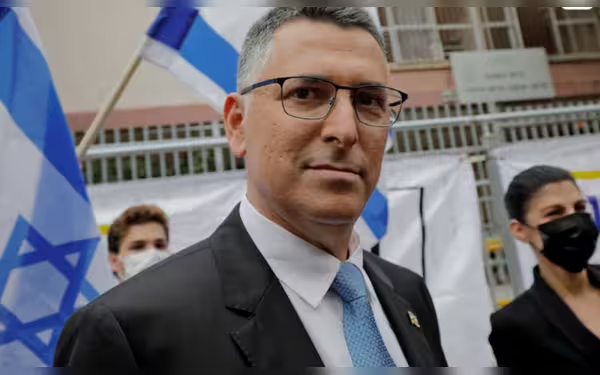Monday, December 23, 2024 06:01 AM
Israeli Foreign Minister Seeks U.S. Action Against ICC
- ICC issues arrest warrants for Israeli leaders.
- Israel plans to appeal ICC's ruling.
- U.S. legislation against ICC anticipated.
 Image Credits: brecorder
Image Credits: brecorderIsraeli Foreign Minister Gideon Saar anticipates U.S. action against ICC following arrest warrants for Israeli leaders amid ongoing Gaza conflict.
The ongoing conflict between Israel and Hamas has drawn international attention, particularly regarding the actions of the International Criminal Court (ICC). Recently, the ICC issued arrest warrants for Israeli Prime Minister Benjamin Netanyahu and former Defence Minister Yoav Gallant, citing allegations of war crimes and crimes against humanity during the Gaza conflict. This decision has sparked a strong reaction from Israel, which plans to appeal the ICC's ruling.
During a visit to the Czech Republic, Israeli Foreign Minister Gideon Saar expressed his belief that the United States would take action against the ICC for its decision. He stated, "I tend to believe that in Washington, legislation is going to take place very shortly against the ICC and whoever cooperates with it." This statement highlights the potential for diplomatic tensions as Israel seeks support from its allies, particularly the U.S., in countering the ICC's actions.
Saar's comments reflect a broader sentiment among Israeli officials who view the ICC's move as politically motivated and detrimental to Israel's security interests. He emphasized that Israel's military operations in Gaza are aimed at achieving specific objectives, including the return of hostages held by Hamas and the dismantling of Hamas's control over the region. Saar asserted that Israel does not intend to govern civilian life in Gaza, suggesting that the ultimate goal is to establish a lasting peace.
Despite the ongoing conflict, Saar remains optimistic about the prospects for peace, stating that it is "inevitable" but cannot be based on "illusions." This perspective underscores the complexity of the situation, as both sides grapple with deep-seated grievances and the challenges of reaching a sustainable resolution.
As the situation unfolds, the international community will be watching closely. The actions taken by the U.S. and other nations in response to the ICC's decision could have significant implications for international law and the future of the Israeli-Palestinian conflict. It is crucial for all parties involved to engage in constructive dialogue and seek pathways to peace that prioritize human rights and justice for all affected populations.













